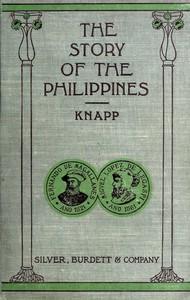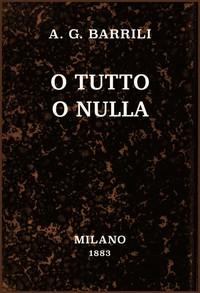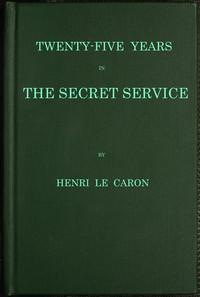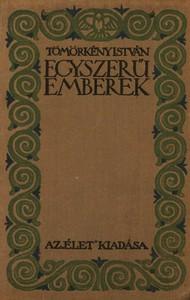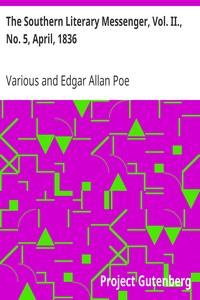|
|
Read this ebook for free! No credit card needed, absolutely nothing to pay.Words: 57412 in 18 pages
This is an ebook sharing website. You can read the uploaded ebooks for free here. No credit cards needed, nothing to pay. If you want to own a digital copy of the ebook, or want to read offline with your favorite ebook-reader, then you can choose to buy and download the ebook.

: The story of the Philippines for use in the schools of the Philippine Islands by Knapp Adeline - Philippines History@FreeBooksThu 08 Jun, 2023 LECTURE PAGE LECTURE I THE SEA CRADLE OF THE REFORMATION Jean Paul, the German poet, said that God had given to France the empire of the land, to England the empire of the sea, and to his own country the empire of the air. The world has changed since Jean Paul's days. The wings of France have been clipped; the German Empire has become a solid thing; but England still holds her watery dominion; Britannia does still rule the waves, and in this proud position she has spread the English race over the globe; she has created the great American nation; she is peopling new Englands at the Antipodes; she has made her Queen Empress of India; and is in fact the very considerable phenomenon in the social and political world which all acknowledge her to be. And all this she has achieved in the course of three centuries, entirely in consequence of her predominance as an ocean power. Take away her merchant fleets; take away the navy that guards them: her empire will come to an end; her colonies will fall off, like leaves from a withered tree; and Britain will become once more an insignificant island in the North Sea, for the future students in Australian and New Zealand universities to discuss the fate of in their debating societies. How the English navy came to hold so extraordinary a position is worth reflecting on. Much has been written about it, but little, as it seems to me, which touches the heart of the matter. We are shown the power of our country growing and expanding. But how it grew, why, after a sleep of so many hundred years, the genius of our Scandinavian forefathers suddenly sprang again into life--of this we are left without explanation. The English sea power was the legitimate child of the Reformation. It grew, as I shall show you, directly out of the new despised Protestantism. Matthew Parker and Bishop Jewel, the judicious Hooker himself, excellent men as they were, would have written and preached to small purpose without Sir Francis Drake's cannon to play an accompaniment to their teaching. And again, Drake's cannon would not have roared so loudly and so widely without seamen already trained in heart and hand to work his ships and level his artillery. It was to the superior seamanship, the superior quality of English ships and crews, that the Spaniards attributed their defeat. Where did these ships come from? Where and how did these mariners learn their trade? Historians talk enthusiastically of the national spirit of a people rising with a united heart to repel the invader, and so on. But national spirit could not extemporise a fleet or produce trained officers and sailors to match the conquerors of Lepanto. One slight observation I must make here at starting, and certainly with no invidious purpose. It has been said confidently, it has been repeated, I believe, by all modern writers, that the Spanish invasion suspended in England the quarrels of creed, and united Protestants and Roman Catholics in defence of their Queen and country. They remind us especially that Lord Howard of Effingham, who was Elizabeth's admiral, was himself a Roman Catholic. But was it so? The Earl of Arundel, the head of the House of Howard, was a Roman Catholic, and he was in the Tower praying for the success of Medina Sidonia. Lord Howard of Effingham was no more a Roman Catholic than--I hope I am not taking away their character--than the present Archbishop of Canterbury or the Bishop of London. He was a Catholic, but an English Catholic, as those reverend prelates are. Roman Catholic he could not possibly have been, nor anyone who on that great occasion was found on the side of Elizabeth. A Roman Catholic is one who acknowledges the Roman Bishop's authority. The Pope had excommunicated Elizabeth, had pronounced her deposed, had absolved her subjects from their allegiance, and forbidden them to fight for her. No Englishman who fought on that great occasion for English liberty was, or could have been, in communion with Rome. Loose statements of this kind, lightly made, fall in with the modern humour. They are caught up, applauded, repeated, and pass unquestioned into history. It is time to correct them a little. I have in my possession a detailed account of the temper of parties in England, drawn up in the year 1585, three years before the Armada came. The writer was a distinguished Jesuit. The account itself was prepared for the use of the Pope and Philip, with a special view to the reception which an invading force would meet with, and it goes into great detail. The people of the towns--London, Bristol, &c.--were, he says, generally heretics. The peers, the gentry, their tenants, and peasantry, who formed the immense majority of the population, were almost universally Catholics. But this writer distinguishes properly among Catholics. There were the ardent impassioned Catholics, ready to be confessors and martyrs, ready to rebel at the first opportunity, who had renounced their allegiance, who desired to overthrow Elizabeth and put the Queen of Scots in her place. The number of these, he says, was daily increasing, owing to the exertions of the seminary priests; and plots, he boasts, were being continually formed by them to murder the Queen. There were Catholics of another sort, who were papal at heart, but went with the times to save their property; who looked forward to a change in the natural order of things, but would not stir of themselves till an invading army actually appeared. But all alike, he insists, were eager for a revolution. Let the Prince of Parma come, and they would all join him; and together these two classes of Catholics made three-fourths of the nation. The date of this document is, as I said, 1585, and I believe it generally accurate. The only mistake is that among the Anglican Catholics there were a few to whom their country was as dear as their creed--a few who were beginning to see that under the Act of Uniformity Catholic doctrine might be taught and Catholic ritual practised; who adhered to the old forms of religion, but did not believe that obedience to the Pope was a necessary part of them. One of these was Lord Howard of Effingham, whom the Queen placed in his high command to secure the wavering fidelity of the peers and country gentlemen. But the force, the fire, the enthusiasm came from the Puritans, from men of the same convictions as the Calvinists of Holland and Rochelle; men who, driven from the land, took to the ocean as their natural home, and nursed the Reformation in an ocean cradle. How the seagoing population of the North of Europe took so strong a Protestant impression it is the purpose of these lectures to explain. After Henry was excommunicated, and Ireland rebelled, and England itself threatened disturbance, the King had to look to his security. He made little noise about it. But the Spanish ambassador reported him as silently building ships in the Thames and at Portsmouth. As invasion seemed imminent, he began with sweeping the seas of the looser vermin. A few swift well-armed cruisers pushed suddenly out of the Solent, caught and destroyed a pirate fleet in Mount's Bay, sent to the bottom some Flemish privateers in the Downs, and captured the Flemish admiral himself. Danger at home growing more menacing, and the monks spreading the fire which grew into the Pilgrimage of Grace, Henry suppressed the abbeys, sold the lands, and with the proceeds armed the coast with fortresses. 'You threaten me,' he seemed to say to them, 'that you will use the wealth our fathers gave you to overthrow my Government and bring in the invader. I will take your wealth, and I will use it to disappoint your treachery.' You may see the remnants of Henry's work in the fortresses anywhere along the coast from Berwick to the Land's End. Louder thundered the Vatican. In 1539 Henry's time appeared to have come. France and Spain made peace, and the Pope's sentence was now expected to be executed by Charles or Francis, or both. A crowd of vessels large and small was collected in the Scheldt, for what purpose save to transport an army into England? Scotland had joined the Catholic League. Henry fearlessly appealed to the English people. Catholic peers and priests might conspire against him, but, explain it how we will, the nation was loyal to Henry and came to his side. The London merchants armed their ships in the river. From the seaports everywhere came armed brigantines and sloops. The fishermen of the West left their boats and nets to their wives, and the fishing was none the worse, for the women handled oar and sail and line and went to the whiting-grounds, while their husbands had gone to fight for their King. Genius kindled into discovery at the call of the country. Mr. Fletcher of Rye invented a boat the like of which was never seen before, which would work to windward, with sails trimmed fore and aft, the greatest revolution yet made in shipbuilding. A hundred and fifty sail collected at Sandwich to match the armament in the Scheldt; and Marillac, the French ambassador, reported with amazement the energy of King and people. Five years had passed since the gathering at Sandwich. It was now the summer of 1544. The records say that the French collected at Havre near 300 vessels, fighting ships, galleys, and transports. Doubtless the numbers are far exaggerated, but at any rate it was the largest force ever yet got together to invade England, capable, if well handled, of bringing Henry to his knees. The plan was to seize and occupy the Isle of Wight, destroy the English fleet, then take Portsmouth and Southampton, and so advance on London. In this Portsmouth fleet lay undeveloped the genius of the future naval greatness of England. A small fact connected with it is worth recording. The watchword on board was, 'God save the King'; the answer was, 'Long to reign over us': the earliest germ discoverable of the English National Anthem. Free books android app tbrJar TBR JAR Read Free books online gutenberg More posts by @FreeBooks
: O tutto o nulla: romanzo by Barrili Anton Giulio - Italian fiction 19th century@FreeBooksThu 08 Jun, 2023

: Twenty-five years in the Secret Service: The recollections of a spy by Le Caron Henri - Canada History Fenian Invasions 1866-1870; Fenians; Le Caron Henri 1841-1894; Irish Americans; Secret service Great Britain Biography@FreeBooksThu 08 Jun, 2023
|
Terms of Use Stock Market News! © gutenberg.org.in2025 All Rights reserved.

